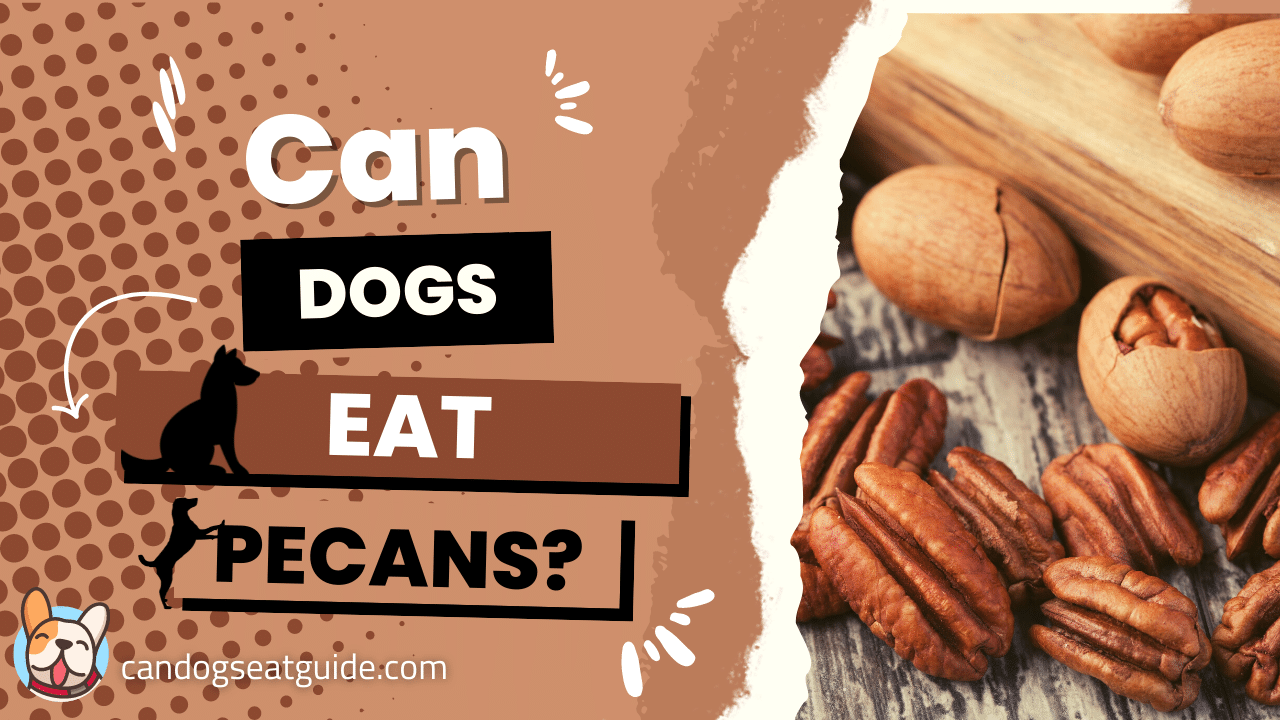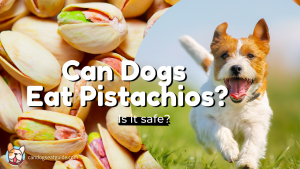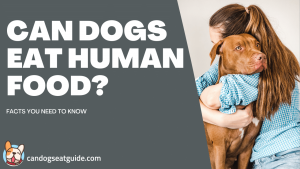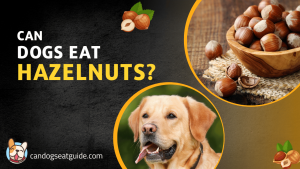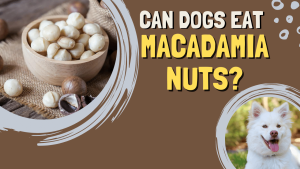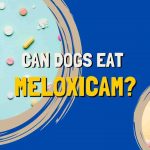Do you love nuts? What about pecans?
If you are like me and love to eat all nuts, give me a high five.
Now let’s see if can dogs eat pecans or if the pecans are for us only.
What Are Pecans?
Pecans are a type of tree nut native to North America. The nuts are often used in appetizers and desserts. They are high in calories and fat. But they are a good source of fiber, copper, zinc, and thiamine. They also contain a good amount of protein.
Pecans may improve the health condition of humans and control blood sugar.
Can Dogs Eat Pecans? Safe or Toxic Nuts?
Dogs shouldn’t eat pecans.
Dogs shouldn’t eat pecans because these nuts are toxic to dogs. Even in small amounts, they can make your dog get sick.

If your dog has one or two, you shouldn’t worry but if this happens only once in a very long time. If it happens every day then it will cause the same problems as more nuts at once.
But even if your dog has only one pecan you should call your vet because the vet may advise you what to do and if some signs show up what to do to make your doggo feel better faster.
The size of these nuts also makes them dangerous for your dog as they can cause choking hazards or even intestinal blockage.
Why Dogs Shouldn’t Eat Pecans?
Feeding dogs pecans can cause gastrointestinal obstruction or upset stomach. Moldy pecans, containing tremorgenic mycotoxins, can cause seizures and neurotoxicosis in dogs.
Dogs shouldn’t eat pecans even if they don’t have mold. Pecans naturally contain juglone which is very toxic to dogs. It can cause mild toxicity if it is eaten in small amounts and severe toxicity in big amounts.
Make sure that all pecans are very well hidden from dogs.
Risk of Toxic Mold
Mold in nuts is rare but very often found in walnuts and pecans. Even if you give your dog fresh pecans, the risk of mold is still there. Mold in pecans is also toxic as it contains mycotoxins. Mycotoxins can cause a variety of life-threatening health issues. Symptoms of severe illness can occur fast after consuming moldy pecans. These signs include:
- hyperthermia
- vomiting
- salivation
- seizures
- tremors
- ataxia
- tachycardia
Symptoms can start 1 or 2 hours after the consumption.
Risk of Pancreatitis
Nuts are high in fats and nuts are known for their energy boost effect on humans. But the high-fat content in pecans makes the risk of pancreatitis grow and if a dog eats pecans or any other nuts in high amounts the chance of severe pancreatitis is big.
The symptoms of pancreatitis are vomiting, diarrhea, lethargy, and loss of appetite. Usually, dogs that have pancreatitis get sick faster and the risk of dehydration is big.
If you notice that your dog doesn’t feel good after eating any nuts, call your vet immediately.
What is juglone?
Pecans contain a component called juglone, toxic for dogs and many types of plants. Juglone can be found in every part of the pecan trees – leaves, stems, and nuts.
It is usually used as an herbicide, as a coloring agent for food and cosmetics, and as a dye for clothes.
It’s the most concentrated in walnuts, particularly in black walnuts, but in pecans is in high amounts too. Plants produce the component juglone to survive.
Health Benefits of Pecans

Let’s see if pecans can give some health benefits to dogs except toxicity.
Pecans contain a good amount of fiber, protein, copper, and other vitamins and minerals that help the overall health condition of humans, but dogs can’t eat them because of the risk of toxicity.
Pecans also can lower the level of bad cholesterol.
There is no use to give your dog 1 or 2 pecans as they can’t get any nutrition but can cause an upset stomach.
What Symptoms to Expect If My Dog Ate Pecans?
As you already know how many problems pecans have for dogs – so many kinds of toxicities, the negative side of too many calories, and the high level of fat.
Now let’s see what are the signs your dog can get by consuming pecans.
- vomiting
- diarrhea
- fever
- tremors
- muscle weakness
- seizures
- loss of appetite
- increased or difficult urination
- increased defecation
- yellowing eyes
- yellowing gums
What to Do If My Dog Ate Pecans?
You and your family like to eat pecans, though you should ensure that your dog can’t reach them while you are out or not paying attention.
If your dog had a very little amount of pecans you should monitor for any strange signs that occur. But if your dog had big amounts of pecans rush fast to the nearest vet clinic.
Safe Alternatives of Pecans
There are few nuts that are safe for dogs but you should still be careful as all nuts contain oils and fats.
Dogs should avoid pecan, walnuts, macadamia nuts, brazil nuts, and pistachios.
Peanuts, for example, are safe for dogs in small amounts. Peanut butter is safe for dogs if it doesn’t contain sweeteners or xylitol. Xylitol is a harmless ingredient for humans but very dangerous for dogs. Big amounts of nuts can cause pancreatitis or inflammation of the pancreas.
Other safe alternatives are chestnuts, almonds, and cashews.
Summary
Pecans can be eaten by humans safely but the situation with dogs isn’t the same. Pecans contain toxins that can cause gastrointestinal issues for dogs or liver failure. So keep the pecans for you and your family.
Let us know what nuts you give your dog and tell us about which nut you want to be the next article.
Video Answer
FAQs
Can dogs eat pecans if they are cooked?
Cooked, raw, or roasted – pecans are still toxic, so No.
Can dogs eat pecans ice cream?
Dogs shouldn’t eat ice cream and even more, they shouldn’t eat anything containing pecans.
Can dogs eat pecans pie?
Dogs shouldn’t eat pecan pie. Pies usually are high in sugars, carbs, and calories. This along with the toxicity of pecans is a life-threatening disaster.
Can dogs eat pecans directly from trees?
It’s again not a good idea as now dogs should deal with the shells of pecans too. But eating the shall of pecans can cause intestinal blockage.

